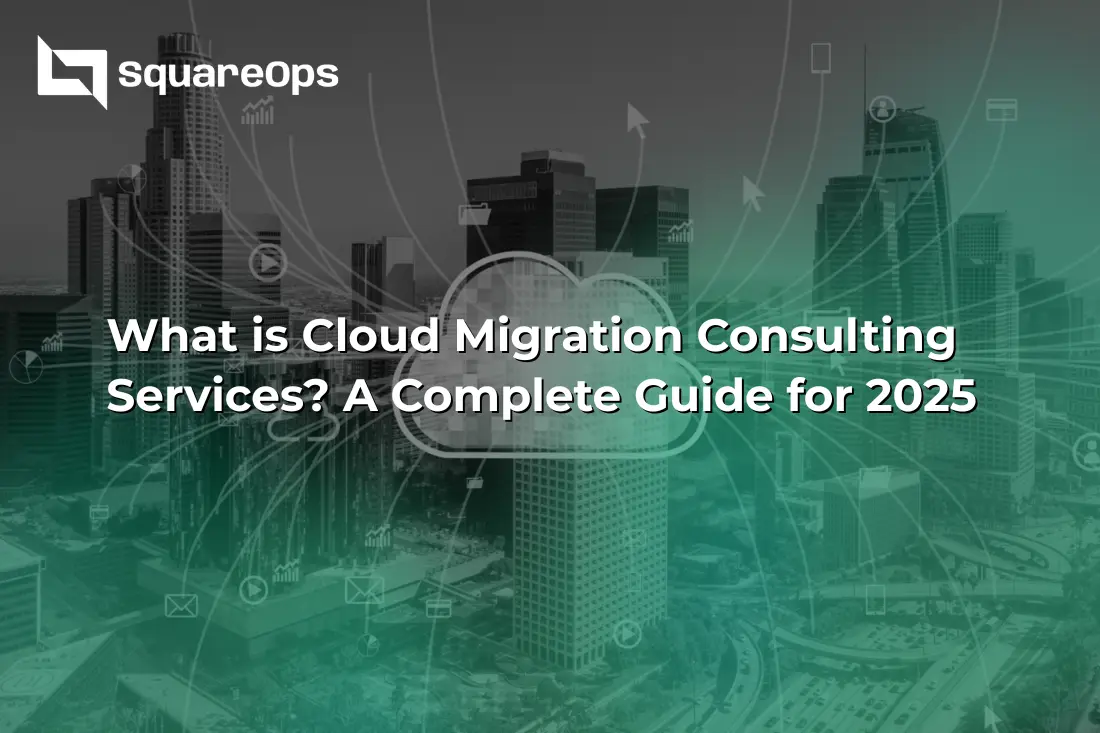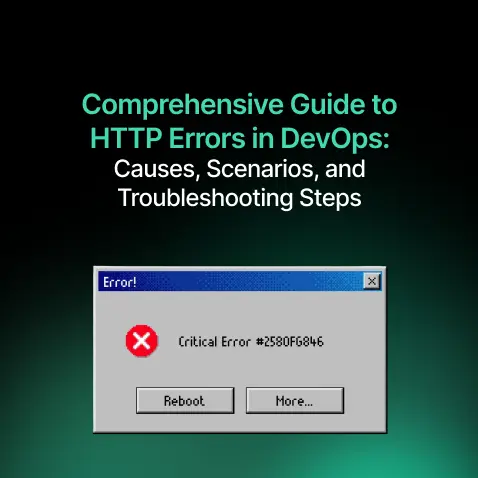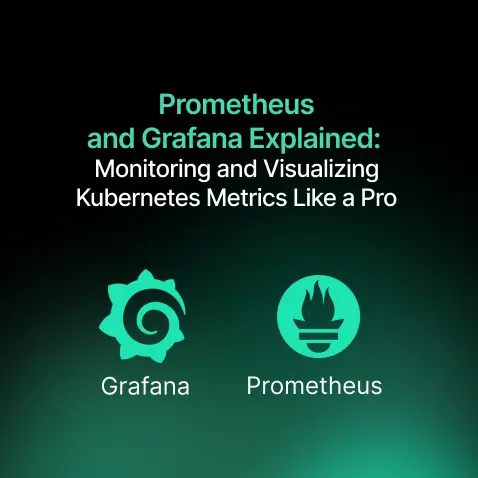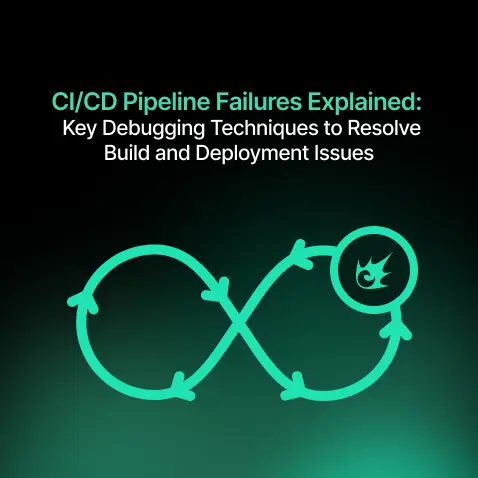What is Cloud Migration Consulting Services? A Complete Guide for 2025
- Nitin Yadav
- Knowledge
About

Cloud migration consulting services simplify your move to AWS, Azure, or GCP. Discover strategies, benefits, and expert tips for a smooth, secure cloud transition.
Industries
- AWS Migration Services, Azure cloud consultants, cloud consulting firms, cloud migration consulting, cloud migration strategy, cloud transition 2025, GCP migration experts
Share Via
In today’s hyper-digital business environment, cloud computing is no longer optional it’s foundational. Yet for many organizations, especially enterprises burdened with legacy systems, the journey to the cloud can be complex, costly, and disruptive. That’s where cloud migration consulting services come in.
These specialized services provide businesses with the strategy, tools, expertise, and hands-on support needed to successfully migrate their digital assets applications, databases, workloads, and infrastructures—to a cloud environment.
In this detailed guide, we’ll explain everything you need to know about cloud migration consulting services what they are, why they matter, the process, benefits, key service providers, and how to choose the right partner for your business
What is Cloud Migration?
Cloud migration is the process of moving digital assets—including applications, databases, storage, and servers—from on-premise infrastructure to a cloud computing environment such as AWS, Microsoft Azure, or Google Cloud Platform (GCP). This migration can be to public, private, or hybrid cloud environments.
What are Cloud Migration Consulting Services?
Cloud migration consulting services help organizations plan, execute, and optimize the transition from legacy systems or on-premise infrastructure to the cloud. These services are delivered by cloud experts or third-party consultants and typically include:
- Cloud readiness assessments
- Cost-benefit analysis
- Migration strategy and roadmap
- Security and compliance planning
- Actual implementation and validation
- Post-migration optimization and support
These services are often bundled into packages tailored for SMBs, mid-market enterprises, or large organizations with complex IT ecosystems.
Why Businesses Need Cloud Migration Consulting
Migrating to the cloud isn’t just a technical task—it’s a strategic initiative. Mistakes can result in application downtime, data loss, security vulnerabilities, and overspending. A cloud migration consultant ensures:
- Proper architecture design
- Secure and compliant migration
- Minimal disruption to operations
- Optimization of cloud resources post-migration
Core Components of Cloud Migration Consulting
Here are the major deliverables typically included in cloud migration consulting:
- Cloud Readiness Assessment
- TCO (Total Cost of Ownership) and ROI Forecasting
- Workload Discovery and Dependency Mapping
- Strategy Development (Lift-and-shift, refactor, re-platform, etc.)
- Security and Risk Mitigation Planning
- Migration Execution
- Monitoring and Reporting
- Ongoing Optimization and Support
The Cloud Migration Process (Step-by-Step)
Step 1: Discovery & Assessment
Analyze your current IT landscape—applications, workloads, databases, and dependencies.
Step 2: Planning & Strategy
Choose the right cloud model and provider. Define your migration strategy (e.g., lift and shift vs. replatforming).
Step 3: Proof of Concept
Test migration of a small, low-risk workload to validate approach.
Step 4: Migration
Execute the migration based on your phased roadmap—this can be done app-by-app or in waves.
Step 5: Validation & Optimization
Test performance, security, and data integrity. Tune configurations for performance and cost.
Step 6: Ongoing Monitoring
Set up dashboards, cost alerts, and logging tools to ensure continued performance and efficiency.
Types of Cloud Migration Strategies
- Lift and Shift: Rehosting apps on cloud servers without major changes.
- Replatforming: Making minimal changes to optimize for the cloud.
- Refactoring: Rewriting apps to fully leverage cloud-native capabilities.
- Repurchasing: Switching to SaaS alternatives.
- Retiring: Decommissioning outdated apps.
- Retaining: Keeping some workloads on-premise for compliance or cost reasons
Benefits of Cloud Migration Consulting Services
- Reduced Risk of Downtime
- Accelerated Time-to-Cloud
- Optimized Cloud Spending
- Enhanced Security and Compliance
- Improved Scalability and Flexibility
- Access to Cloud Expertise & Best Practices
Top Cloud Migration Consulting Providers in 2025
- Atmosly – Best for automated DevOps-led migrations.
- Accenture – Enterprise-grade cloud consulting with deep industry expertise.
- Cloudreach (part of Eviden) – Agile cloud-native consulting partner.
- Rackspace Technology – Strong multi-cloud managed services.
- Infosys Cobalt – Ideal for digital transformation at scale.
How to Choose the Right Consulting Partner
- Expertise with Your Cloud Provider (AWS, Azure, GCP)
- Proven Case Studies & Industry Experience
- Security & Compliance Capabilities
- Transparent Pricing Models
- Post-Migration Support
- Tools and Automation Stack
Common Cloud Migration Challenges & How Consultants Help
Challenge | How Consultants Help |
Data Loss or Downtime | Use staging, replication, rollback mechanisms |
Cost Overruns | Offer budgeting tools and rightsizing advice |
Security Vulnerabilities | Implement IAM, encryption, firewall setups |
Poor Application Performance | Optimize workloads for cloud infrastructure |
Compliance Issues | Ensure audits and certifications are followed |
Industry Use Cases: Real-World Examples
Retail:
A multi-store retailer migrated legacy POS systems to AWS with the help of a consultant, reducing latency by 60%.
Healthcare:
A telehealth company moved to GCP to meet HIPAA compliance and gain scalable backend systems.
Fintech:
A startup used Azure consultants to refactor their monolithic app into microservices for better agility.
Key Considerations Before Starting
- What is your cloud goal: cost savings, performance, compliance?
- Which applications are cloud-ready?
- How will you handle training and internal adoption?
- What’s your rollback or recovery plan?
- Is your data structured for migration?
Future Trends in Cloud Migration
- AI-Powered Migrations: Tools that detect app dependencies, recommend strategies, and automate deployments.
- Hybrid Cloud Consulting: Helping enterprises manage workloads split across public and private clouds.
- Zero-Trust Architecture: Enhanced security integrations during migration.
- Sustainability Metrics: Consulting firms will measure energy savings post-migration.
Conclusion
Cloud migration consulting services are essential for any organization planning to shift infrastructure to the cloud. By working with an experienced partner, companies can ensure a smooth, secure, and cost-efficient transition.
Instead of trying to manage everything in-house, leverage the experience of consultants to future-proof your cloud strategy. Whether you’re lifting and shifting a few apps or rearchitecting your entire stack, the right consulting partner will save you time, money, and stress—while helping you innovate faster.
Talk to a Cloud Migration Expert Contact SquareOps Today
Frequently asked questions
Cloud migration consulting is a specialized service that helps businesses move their IT infrastructure, applications, and data to cloud platforms like AWS, Azure, or GCP. Consultants provide assessment, planning, execution, and post-migration support.
Cloud migration can be complex, especially for enterprises with legacy systems. Consultants reduce risks like downtime, data loss, and overspending by offering expert guidance and execution.
Services often include cloud readiness assessments, cost analysis, strategy development, security and compliance planning, execution, testing, and ongoing optimization.
The duration varies based on complexity. Small migrations may take a few weeks, while large enterprise workloads could take several months. A phased strategy is often used.
Benefits include faster time-to-cloud, optimized costs, improved security, regulatory compliance, reduced operational risks, and access to experienced cloud professionals.
Most cloud migration consultants specialize in AWS, Microsoft Azure, and Google Cloud Platform (GCP), though some also support hybrid or multi-cloud environments.
Costs depend on workload size, service depth, and provider. Some firms charge hourly, while others offer fixed project pricing or managed service models.
Look for experience with your preferred cloud provider, strong client case studies, certifications, transparent pricing, and a clear migration methodology.
Yes, many consultants are skilled at designing hybrid architectures or integrating multiple cloud platforms for performance, compliance, or cost optimization reasons.
Common mistakes include lack of planning, poor cost estimation, skipping security setup, underestimating app dependencies, and not validating post-migration performance.
Related Posts

Comprehensive Guide to HTTP Errors in DevOps: Causes, Scenarios, and Troubleshooting Steps
- Blog

Trivy: The Ultimate Open-Source Tool for Container Vulnerability Scanning and SBOM Generation
- Blog

Prometheus and Grafana Explained: Monitoring and Visualizing Kubernetes Metrics Like a Pro
- Blog

CI/CD Pipeline Failures Explained: Key Debugging Techniques to Resolve Build and Deployment Issues
- Blog

DevSecOps in Action: A Complete Guide to Secure CI/CD Workflows
- Blog

AWS WAF Explained: Protect Your APIs with Smart Rate Limiting
- Blog

